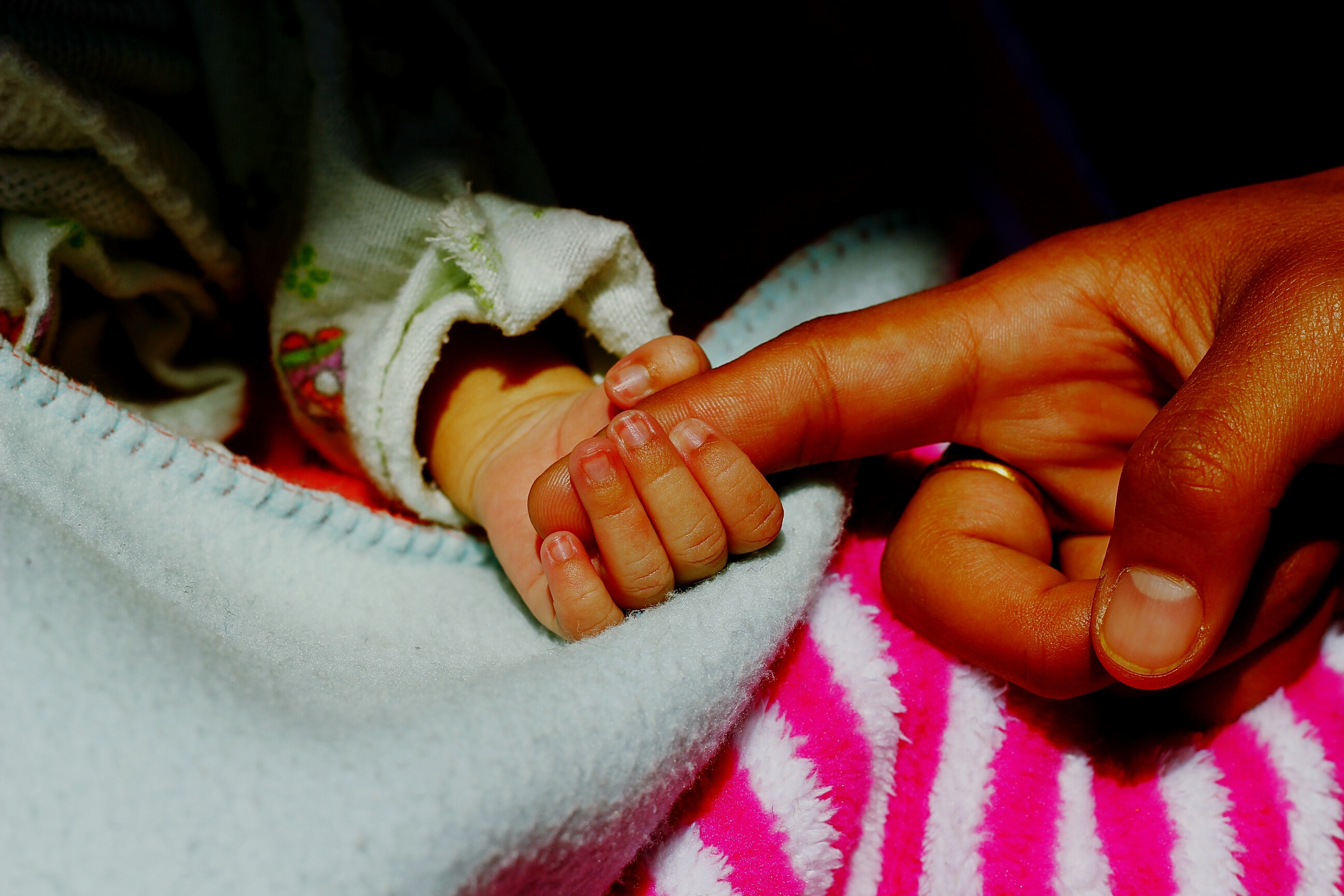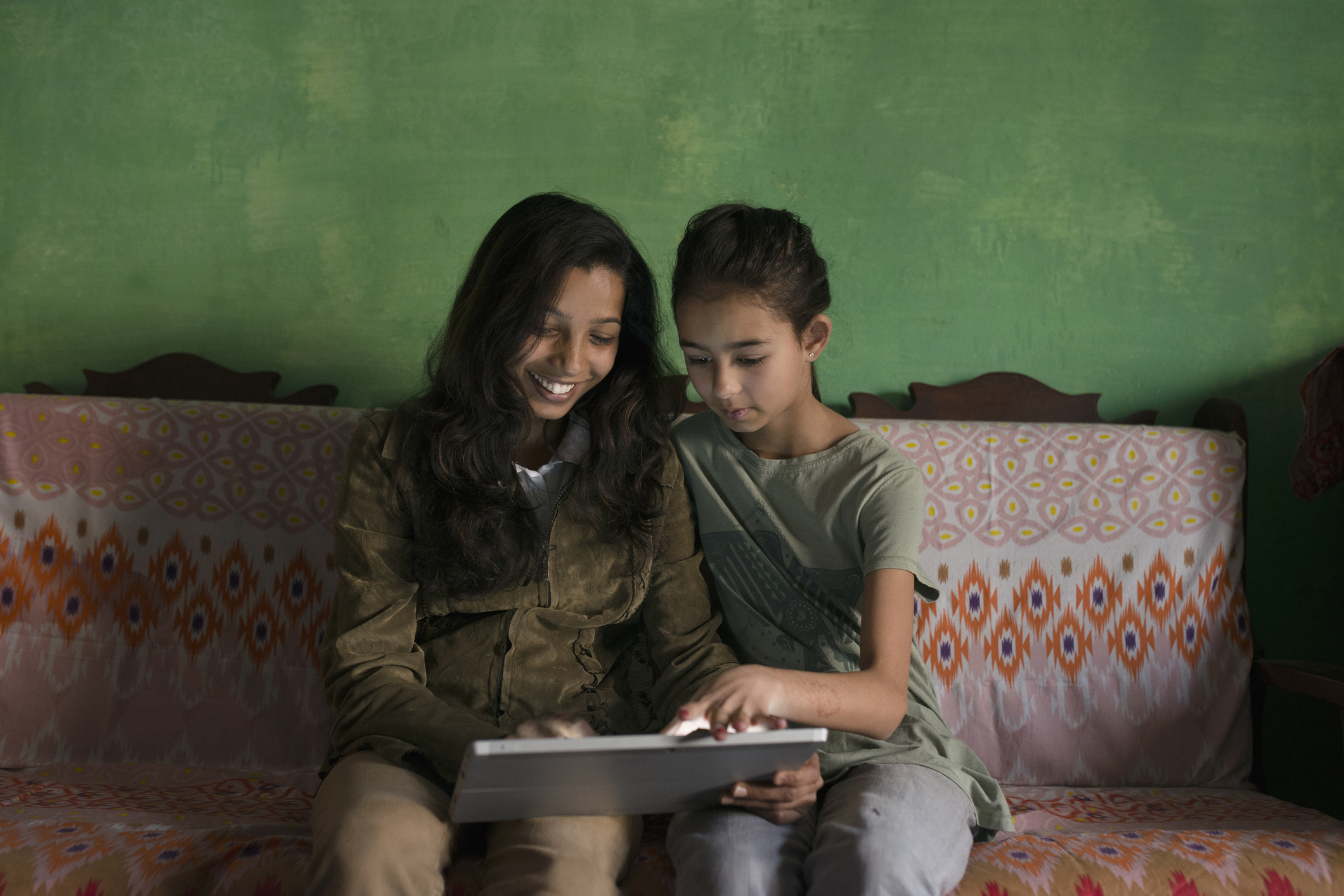
Health & Medicine
(Don’t) always look on the bright side of life

How a simple talking therapy empowers women with perinatal depression to make better economic decisions
Published 5 April 2018
In one of the largest psychotherapy trials in the world, researchers have found cognitive behavioural therapy (CBT) is highly effective in helping mothers with perinatal depression get better, and make smarter economic choices.
Perinatal depression is experienced during pregnancy or in the first year after birth, and is estimated to affect between 12 and 20 per cent of women in OECD (Organisation for Economic Co-operation and Development) countries, and 20-35 per cent of women in poorer countries.

Dr Victoria Baranov, a development economist at the University of Melbourne’s Faculty of Business and Economics, worked alongside colleagues at international universities to evaluate the long-term impacts of CBT for mothers with perinatal depression in rural Pakistan.
Dr Baranov says her main motivation was to see if treating perinatally-depressed women with CBT could help them be more economically empowered, and make better financial decisions for their families. CBT is a simple, talking therapy that encourages people to think about their circumstances differently.

Health & Medicine
(Don’t) always look on the bright side of life
“We wanted to know if CBT could affect the decisions women made about household spending, and the time and money they invested in their children,” Dr Baranov explains.
The trial of CBT, carried out by and evaluated by researchers in the UK and Pakistan, involved 903 women diagnosed with clinical depression by a psychologist across 40 communities in Punjab, the second largest province in Pakistan.
In 2005-6, all the women in the trial received routine health and maternal services from government-funded community health workers, while half also had CBT.
The CBT was carried out by the community health workers, who were trained to deliver the therapy.
Over the course of a year, the women in the treatment group had 16 CBT sessions during home visits, starting in the third trimester and finishing when the children were 10 months old.
The follow-up at one year after the first treatment showed a 73 per cent reduction in depression rates amongst the women who received the CBT, compared with a 41 per cent reduction for the control group.

Professor Nick Haslam, Professor of Psychology at the University of Melbourne, says CBT is a proven, effective tool for treating people with depression and other mental health conditions.
“The basic idea of CBT is that the way to change how people respond to their life circumstances, is to change the way they think about them; it’s a set of techniques to help encourage reflection on your thought processes and alter them in ways that make them a bit more rational and less self-defeating,” he explains.

Health & Medicine
Supplements supercharge antidepressants
In what is likely the longest-term follow-up of any psychotherapy intervention, Dr Baranov’s international colleagues returned to Pakistan in 2013, to see what longer-term effects the therapy had on the women.
What Dr Baranov found remarkable, she says, was how the CBT contributed to the women’s economic empowerment.
She and her colleagues found that women treated with CBT were 17 per cent more likely to have control over their household spending than the women who did not have therapy.
The mothers’ control over spending improved by around 10 percentage points in each of the six-month, 12-month and seven-year follow-ups.
Dr Baranov says that after seven years, the women who had received CBT were not only more economically empowered than the cohort who did not get therapy; they had also invested more in their children.
“The women who had the CBT were more likely to have sent their children to better quality schools and have more learning materials at home,” says Dr Baranov.
The women who received CBT were also more likely to invest more in their daughters’ education, compared with the women who did not have the treatment.

Dr Baranov says this is likely to be the case because as the treated women felt more empowered, they felt able to make equal investments in their sons’ and daughters’ education.
“Whereas because of the strong culture in Pakistan of son preference, families might ordinarily pressure resources to be skewed heavily towards boys, and away from girls,” explains Dr Baranov.

Health & Medicine
4 ways tech can help your mental health
“By investing more in their daughters’ education, the women who had the CBT are potentially helping their families break free from the intergenerational cycle of poverty.”
Dr Baranov says in contrast to other interventions aimed at financially empowering women in developing countries to break free from poverty – such as offering livestock, loans or contraception, CBT is less likely to cause tension in the household.
“What is interesting about this intervention is, while it didn’t explicitly target empowerment, it still generated sustained improvements that other interventions have struggled to achieve,” says Dr Baranov.
According to Professor Haslam, CBT is often a more long-lasting treatment than medication.
“I think one of the good things about CBT as an alternative to an anti-depressant, anti-anxiety or other psychiatric medication, is it often has more durable effects.”

Health & Medicine
The value of strength-based parenting
He says one of the more radical aspects of the study was how the CBT was delivered by local health workers.
“The idea that you can export this form of treatment and adapt it to a local non-Western context is really interesting. That, and the very large scale of the project, is why this work is so important,” he says.
“Depression is a major public health challenge – not just in wealthy countries – but all over the globe – and it’s growing,” adds Professor Haslam.
“I think a lot of people might rule out CBT because it seems too time and labour intensive, but these researchers have found a way around that, they have found this treatment has real promise.”
The treatment was also relatively cheap to deliver, at just US$10 per woman for the year of treatment.
For Dr Baranov, there are major implications for policy makers, as the researchers have found that maternal depression “is potentially critical to women’s empowerment and to the intergenerational transmission of inequality.”
And, she says, the findings have implications beyond the developing world.
“It will be interesting to discuss with policy makers in Australia how we can improve services for mothers here; how to identify disadvantaged groups – women and families who are at the most at risk for developing maternal depression.”
The project was funded by Grand Challenges Canada.
Banner image: Getty Images